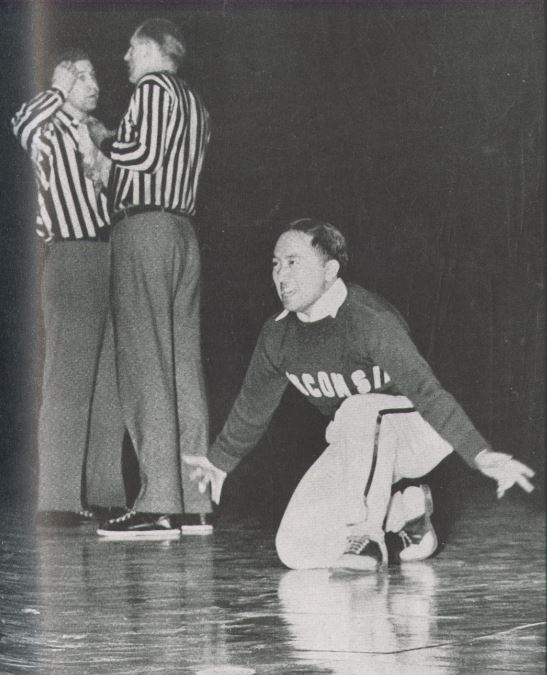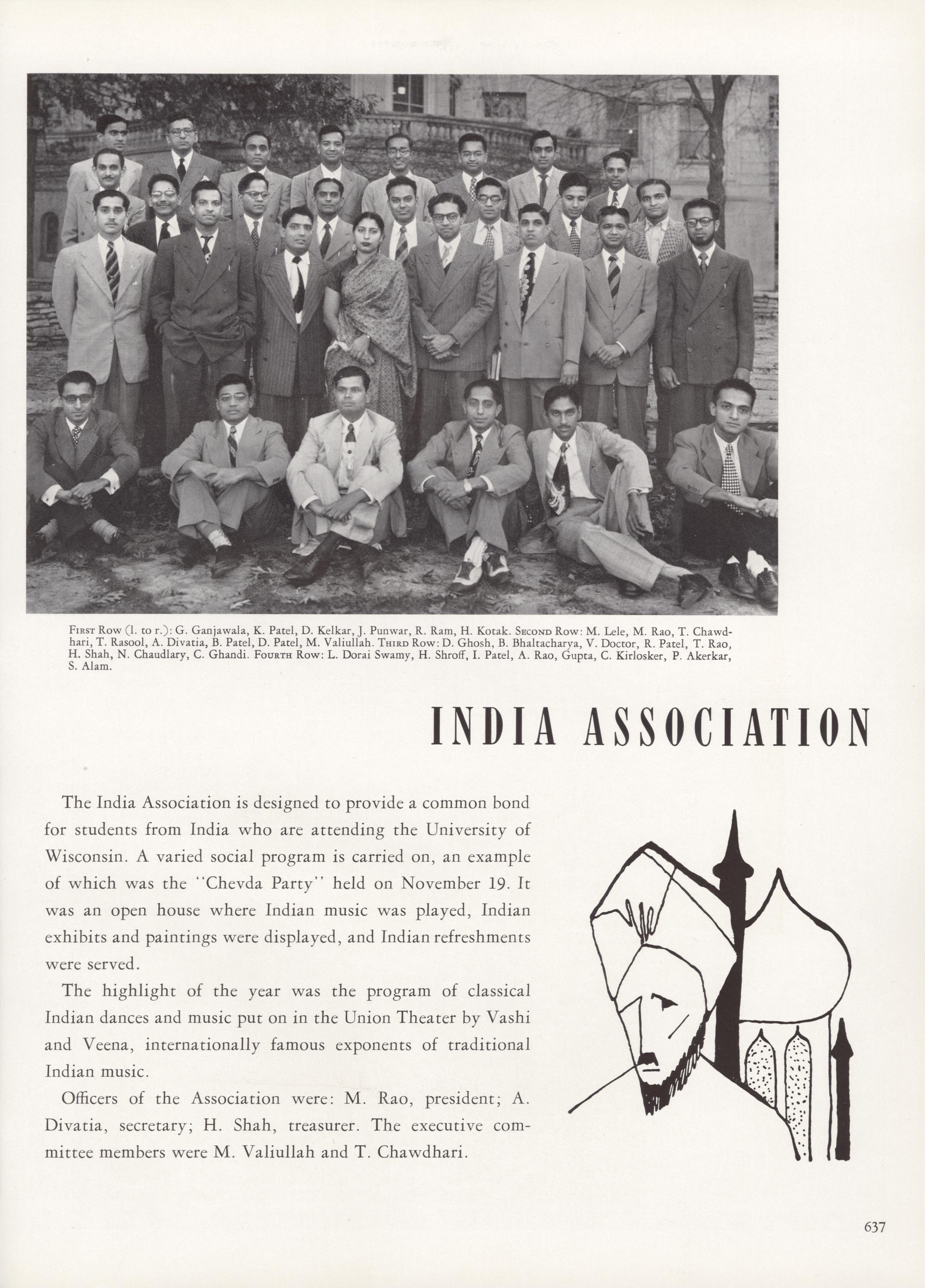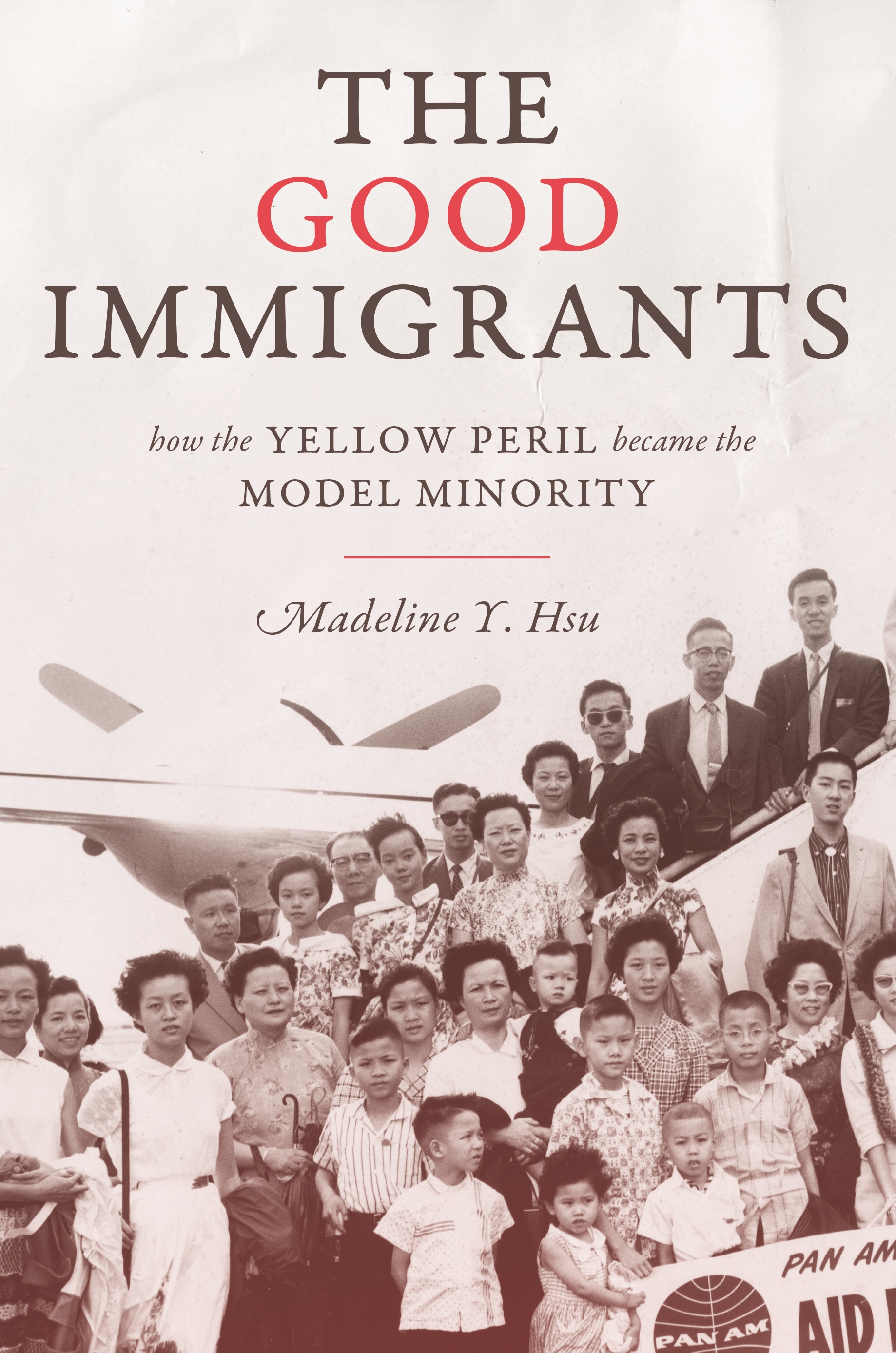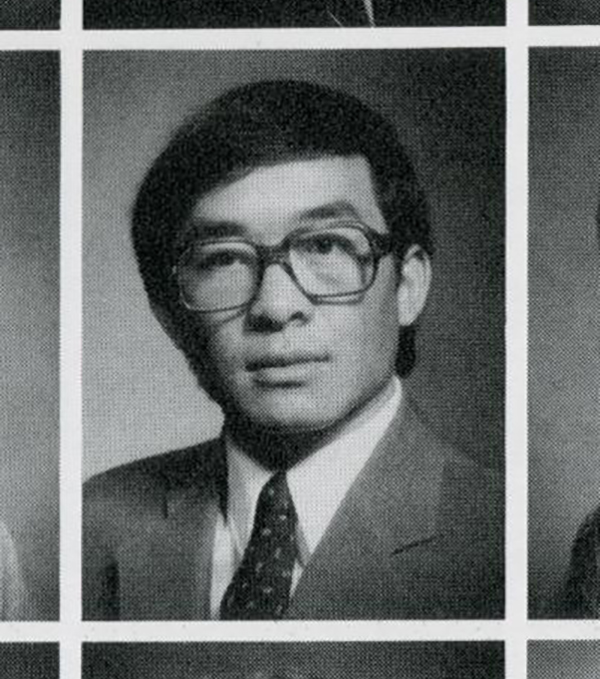Greetings from the Public History Project and happy Asian Pacific Islander Desi American (APIDA) Heritage Month! April's newsletter celebrates APIDA history at UW-Madison and includes links to project research, gobs of events, a snazzy yearbook find from the archives, new book recommendations, and more!
The University of Wisconsin-Madison’s Public History Project is a multi-year effort to uncover and give voice to those who experienced, challenged, and overcame prejudice on campus. As always, if you have a story to share, an event you think should be researched, or a person you think has been overlooked, please email us at publichistoryproject@wisc.edu.
|
|
|
|
|
|
The forced relocation and incarceration of Japanese Americans during the WWII era is a chapter in U.S. history that may be familiar to many. Less so is the fact that some young Japanese Americans of the period ended up on college campuses in the Midwest, including at UW-Madison.
Take a look at our blog post about the university’s relatively liberal racial admissions policies at the time, which brought more Japanese American students to campus, as well the hardships they still faced amid a nationwide wartime atmosphere that was strongly anti-Japanese.
And read some stories of individual Japanese American Badgers here.
|

|
Japanese American student Toru Iura performing during his time as a UW cheerleader. Notably this photo was featured on the cover of the Wisconsin Engineer Magazine, March of 1948. UW Archives.
|
|
|
|
Meet one of the Project’s History Corp members — Chong Moua! Chong Moua is a Ph.D. candidate in the History Department at UW-Madison working on her dissertation entitled “Refugee Cosmopolitanism: Hmong Refugees and a Critical Stateless Perspective.” Her research interests center on the question of how immigration, race, gender, citizenship, and U.S. empire produce discourses of cultural and national belonging in 20th century U.S. history. She also teaches Hmong American studies courses for the Asian American Studies Program.
Check out Chong’s in-depth post for the Public History Project blog featuring interviews with Hmong American alumni sharing their experiences at UW-Madison.
|
|
|
|
APIDA heritage at UW is anything but a monolith and celebrating it means celebrating a huge mix of traditions, languages and history. This month from the archives, we have an item that gives a glimpse into the college experience of South Asian students in the 1950s.
This page from the 1951 Wisconsin Badger yearbook shows members of the India Association, a club founded, in their words, to “provide a common bond for students from India” at UW-Madison. During decades when many established campus groups actively excluded nonwhite members, students from all sorts of minority backgrounds created their own organizations to forge a sense of community, provide social outlets and celebrate their cultures. The India Association yearbook page describes a calendar of events the club hosted during the school year featuring Indian music, dance, art and food. The organization continues today as the Indian Students Association.
(Side note: Take a look at those sharp outfits!)
|

|
A page from the 1951 Wisconsin Badger yearbook featuring members of the India Association. UW Archives
|
|
|
|
Events! Events! So many events! From science to R&B, panels to performances, take a look at everything still to come this month:
The UW Asian Pacific Islander Desi American Student Center has a packed schedule celebrating APIDA Heritage Month, including their headline event, a performance and Q&A with rising Vietnamese American R&B musician Thuy! The show is free and open to the public, 6:30 p.m., Wednesday, April 27th at Union South. Check out the full lineup of APIDA Heritage Month events here.
|
|
|
Join UW Archives 2021-2022 Student Historians Sophia Abrams and Sydney Tang for a conversation about their research projects, “Black Artists at the UW-Madison” and “Experiences of Students of Color in the Wisconsin Union Directorate” and reflection on their work this past year. Online or at College Library, Tuesday, April 19, at 7 p.m. RSVP here.
|
|
|
|
How are marginalized communities included in the archives, who decides what history is protected, and how can we create a more inclusive record? Friends of the UW-Madison Libraries presents Archival Reflections: Can You See Yourself?, a panel discussion exploring experiences in LGBTQ and BIPOC representation in the archives. Wednesday, April 20, at 6 p.m., streaming here.
|
|
|
|
|
|
Join Public History Project Director Kacie Lucchini Butcher and panelists from across UW for Reckoning with Our History in the Health Sciences, a discussion about exclusionary practices in the history of health science programs, and why that history matters, now and in the future. Presented by the UW Center for Interprofessional Practice and Education. Tuesday, April 26, at 5 p.m. on Zoom. RSVP by April 20.
|
|
|
|
While the discussion of U.S. immigration often centers on those who have been barred from getting in, The Good Immigrants considers immigration from the perspective of Chinese elites — intellectuals, businessmen, and students — who gained entrance because of immigration exemptions. Exploring a century of Chinese migrations, Madeline Hsu looks at how the model minority characteristics of many Asian Americans resulted from US policies that screened for those with the highest credentials in the most employable fields, enhancing American economic competitiveness.
Filled with narratives featuring such renowned Chinese immigrants as I. M. Pei, The Good Immigrants examines the shifts in immigration laws and perceptions of cultural traits that enabled Asians to remain in the United States as exemplary, productive Americans.
|

|
|
|
|

|
A yearbook photo of Song Kue in 1982. UW Archives
|
We get asked a lot of questions about UW history. Each month we’ll answer one in the newsletter. This month, someone wondered: Who was the first Hmong student to graduate from the university?
The answer: He learned English from a dictionary and designed aviation tech!
Song Kue earned a B.S. in electrical engineering in 1982, making him the first Hmong to graduate from UW-Madison. Kue is the exception of his generation given that most Hmong refugees who came to the U.S. as adults did not get the opportunity to pursue higher education. While in Laos, he studied French and began to teach himself English using a French-English dictionary. In the U.S., he enrolled in an English as a Second Language (ESL) program for two years before being accepted at UW-Madison. Following graduation, the U.S. government recruited Kue to design data chips for the black boxes used in fighter jets.
Thanks to Chong Moua for finding the answer to this question!
Got a question? Email us uwpublichistoryproject@wisc.edu.
|
|
|
|
Each month Project Director Kacie Lucchini Butcher will share a book, podcast, movie, quote, or something else she thinks has been adding to the PHP. We're calling it "From The Desk of KLB"
This month From The Desk of KLB — An oral history podcast. Campu from sister-brother production team Hana and Noah Maruyama delves into the history of Japanese American incarceration on a personal scale, weaving together the voices of survivors to spin narratives out of the seemingly mundane things that gave shape to the incarceration experience.
|
|
|
|
As always, if you have a story to share, an event you think should be researched, or a person you think has been overlooked, please email us at publichistoryproject@wisc.edu.
|
|
|
|
|